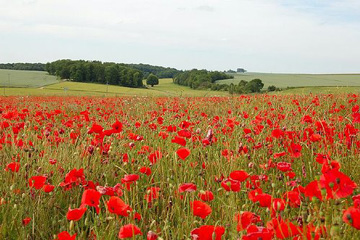 THUNDER BAY – A few weeks ago, I was honoured to spend a day with our reservists from Thunder Bay. About 50 of the Lake Superior Scottish Regiment (including some from the 18 Service Battalion) were in Shilo, Manitoba on a live-fire training exercise. I was impressed with the esprit de corps, the proficiency, and the professionalism of these reservists, most of them young… very young. That got me thinking a great deal about what we owe to our men and women of the armed forces, whether those are from almost a century ago, the Second World War, the Korean conflict, many peace keeping missions around the world, or… as I write these words… in far-away Afghanistan today.
THUNDER BAY – A few weeks ago, I was honoured to spend a day with our reservists from Thunder Bay. About 50 of the Lake Superior Scottish Regiment (including some from the 18 Service Battalion) were in Shilo, Manitoba on a live-fire training exercise. I was impressed with the esprit de corps, the proficiency, and the professionalism of these reservists, most of them young… very young. That got me thinking a great deal about what we owe to our men and women of the armed forces, whether those are from almost a century ago, the Second World War, the Korean conflict, many peace keeping missions around the world, or… as I write these words… in far-away Afghanistan today.
When I pinned on my poppy last week, I got thinking about what that meant today. Most of us know the history of “Poppy Day” here in Canada. But it never hurts to reflect.
The first connection between the poppy and battlefield deaths was apparently during the Napoleonic wars of the early 19th century, when one writer noted that the battlefields bloomed with the blood-red flowers after the fighting was over.
During the First World War, some battlefields became enriched by the lime from rubble caused by the bombardments, encouraging the small plant with the Latin name of Popaver rhoeas to thrive. After John McCrae’s poem famous “In Flanders Fields” was published in 1915, the poppy became a popular metaphor for soldiers who died in battle.
In 1918, an American, Moina Michael, working in a New York City YMCA canteen, started wearing a poppy in memory of the millions who had died on the battlefield. The symbolic custom started to spread. When a French woman named Madame Guerin visited the United States in 1920, she brought the custom to France, where she used handmade poppies to raise money for poor children from war-torn areas of her country.
In November of 1921, the first poppies were distributed in Canada. Millions of Canadians keep the tradition alive today.
Remembrance Day is observed on November 11 to recall the end of World War I. Major hostilities of World War I were formally ended “at the 11th hour of the 11th day of the 11th month” of 1918 with the German signing of the Armistice. The day was specifically dedicated by King George V on 7 November 1919.
Remembrance Day is a very special day. It is our time to salute the brave men and women who sacrificed so much to valiantly defend our country and the freedoms we take for granted. This year’s Remembrance Day caps off National Veterans’ Week, an entire week to honour those who served our country in conflicts past, and especially those who continue to serve us with distinction in Afghanistan.
It is not enough to simply remember their sacrifices. It is equally important that we as a country tend to the needs of veterans who return home with missing limbs or shocked nerves. We must help the families of soldiers, sailors and airmen who don’t return at all. It is incumbent upon us to serve our veterans as they have served us.
Three years ago, my own father passed away. He served with honour in World War II, and was wounded in the South Pacific. Many times when he was alive, I thanked him for his service in fighting for us, so that my family and I today can enjoy freedom and democracy. Let us all give thanks to all the men and women who have risked their lives, or given their lives, whether long, long ago… or today.
Bruce Hyer, MP
